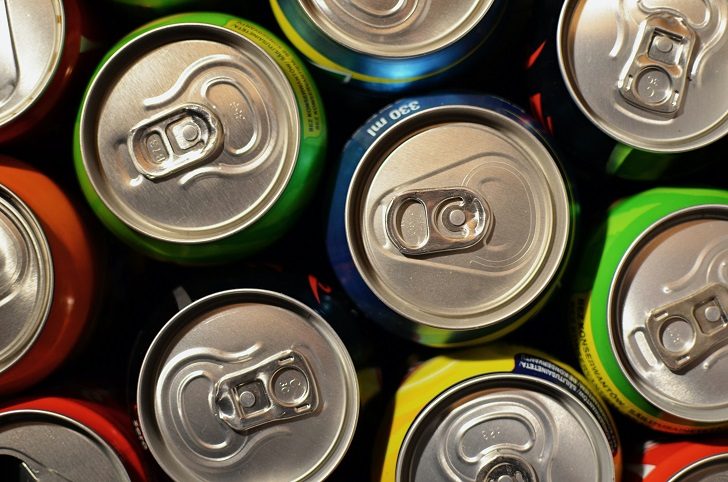Artificial sweeteners have gained immense popularity in recent years, primarily due to the growing concern over the health risks associated with excessive sugar consumption.
These sugar substitutes, such as aspartame, saccharin, sucralose, and steviol glycosides, offer a compelling promise: the ability to enjoy sweetness without the calorie burden. They have become a staple in the diets of many individuals striving for a healthier lifestyle.
The Sweet Promise of Sugar Substitutes
The appeal of artificial sweeteners lies in their capacity to provide sweetness without the adverse metabolic effects of sugar. For individuals with diabetes, obesity, or those simply trying to cut calories, artificial sweeteners have been seen as a valuable tool.
These sugar substitutes are found in a variety of food and beverage products, from diet sodas to sugar-free desserts, allowing people to indulge their sweet tooth without worrying about weight gain or blood sugar spikes.

Breakingpic/ Pexels | Artificial sweeteners help satisfy cravings for sweet taste without consuming additional calories
A Closer Look at the Concerns
However, recent research has raised questions about the safety of artificial sweeteners, particularly about their potential impact on cardiovascular health. Several studies have pointed to a problematic association between consuming artificial sweeteners and an increased risk of cardiovascular conditions, such as stroke and coronary heart disease.
The 2022 Study
One of the studies that garnered significant attention was published in the Journal of the American College of Cardiology in 2022. This research found a troubling link between consuming artificial sweeteners and a heightened risk of stroke and coronary heart disease.
The study, encompassing data from over 80,000 women, indicated that women who consumed more than two servings of artificially sweetened beverages daily had a significantly higher risk of developing these cardiovascular conditions than those who consumed fewer or none.
Uncovering Potential Mechanisms
Another study, published in Nature in 2020, delved deeper into the potential mechanisms by which artificial sweeteners might affect cardiovascular health. This research focused on saccharin and aspartame, two commonly used sugar substitutes, and revealed that their consumption led to alterations in the gut microbiome.
These microbial changes were associated with impaired glucose tolerance, a known risk factor for cardiovascular disease. This study suggested that artificial sweeteners might indirectly impact cardiovascular health by modifying the composition of gut bacteria.

Cottonbro studio/ Pexels | Unlike natural sugars, artificial sweeteners are generally not digested and absorbed in the small intestine
The Need for Caution and Perspective
While these studies provide valuable insights, it's crucial to remember that they establish associations rather than causation. More research is needed to determine whether artificial sweeteners directly contribute to cardiovascular problems or if there are underlying factors that explain these associations.
Additionally, the doses used in some of these studies may not accurately reflect typical human consumption, making it challenging to draw definitive conclusions.
Weighing the Pros and Cons
Amidst these concerns, it's essential to consider the broader context of artificial sweeteners' safety and benefits. For many individuals, these sugar substitutes remain a valuable tool in managing calorie intake and blood sugar levels.
In fact, reputable organizations like the American Heart Association and the American Diabetes Association have stated that artificial sweeteners can be part of a healthy diet when used in moderation.

Erik Mclean/ Pexels | It's important to consider individual preferences, dietary goals, and any specific health concerns when deciding whether or not to use artificial sweeteners
Moderation Is Key
Moderation is the key to responsible artificial sweetener use. Overreliance on these substitutes to satisfy cravings for sweetness may lead to a preference for intensely sweet flavors, potentially contributing to unhealthy eating habits. It's crucial to maintain a balanced approach.
Smart Sweetening Strategies
Mix Up Your Menu
Don't let artificial sweeteners run the show! Spice things up with a variety of foods, especially the naturally sweet gang—fresh fruits! Balance is key.
Label Detective Mode
Time to put on your label-reading glasses! Scan those food and drink labels thoroughly. Even products labeled "sugar-free" or "diet" could be sneaky carriers of artificial sweeteners.
Health Pro Chat
Feeling uncertain about those sweeteners? Chat it out with a healthcare wizard or a registered dietitian. They'll whip up personalized advice tailored to your unique health profile.
Keep the Knowledge Flowing
Stay in the loop! Dive into the latest sweetener research. Science keeps evolving, and fresh discoveries might spill the beans on their safety and how they mingle with your heart health.















